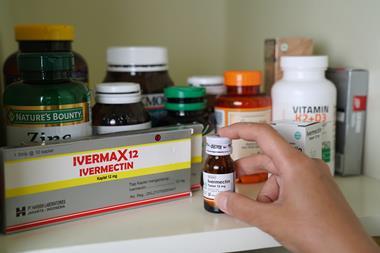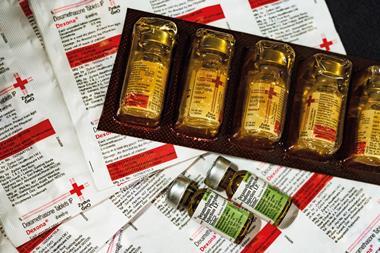Amid the grim hardships and gloomy forecasts of a world living with Covid-19, there are also reasons to be positive. Thanks to the work of scientists around the world, potential therapies and vaccines are emerging, and rates of infection and mortality are falling in many countries. The benefits of scientific advice, research infrastructure and the pharmaceutical and chemical industries are increasingly evident to governments and society everywhere. No surprise perhaps that a Survation poll released early in May found that public trust in scientists has grown during the Covid-19 pandemic. And that is particularly welcome news, because it has never been more important for the public to have faith in science, and in the advice of scientists.
There is a long road ahead through Covid-19, and along the way, careless communication, misinformation and outright attacks on science all threaten to erode that hard-won trust. For example, as Phillip Broadwith has noted, the news that the antiviral drug remdisivir might be effective in treating severe cases of Covid-19 must be handled responsibly. Our desperation for good news – and the willingness of administrations and the media to provide it – make it all too easy to misrepresent progress by taking a snapshot of the lengthy process of developing a treatment. Covid-19 testing and vaccines face the same treacherous path.
It’s particularly important to bear this in mind for scientific advice. In the UK, the government has daily emphasised that it is ‘following the science’. We should welcome, indeed insist upon, evidence-based Covid-19 policies, but we must also be wary of an oversimplified message that belies the complex relationship between science and politics. The notion that science supplies unequivocal answers that dictate a clear course of action is simply not true, nor is it the case that scientific advice will always be followed. Scientists gather the evidence and provide the advice: it is government that must then take heed, take action and take responsibility. When the work and pensions secretary Thérèse Coffey recently appeared to defend aspects of the government’s Covid-19 response by blaming ‘wrong’ science, No 10 rightly distanced itself from the remarks. But it still left scientists concerned that, wittingly or not, they are being framed as decision makers, and therefore politicised.
Members of the UK’s Sage (Science Advisory Group for Emergencies) committee expressed similar concerns in the wake of Neil Ferguson’s decision to stand down from the group, after it emerged he had ignored the rules on social distancing. Ferguson had been one of Sage’s most visible members – the modelling by his Imperial College London team was key to swaying opinion towards lockdown. Discussing Ferguson’s resignation, the health minister Matt Hancock said he would not back him to remain, which angered other Sage members who felt that Ferguson’s mistake did not warrant resignation from what is an unpaid, voluntary role, nor such widely publicised opprobrium.
However, if we are to emphasise any aspect of Ferguson’s conduct, it should be his decision to step down. When the Scottish chief medical adviser Catherine Calderwood showed similarly poor judgement by visiting her second home during lockdown, she too stepped down from her advisory role, saying the public ‘must have complete trust in those who give them advice’. For scientists, integrity is not a political gambit.
It is a great shame that we do not expect the same of politicians, and there is a sense that some politicians view science as just another stratagem in the political playbook. In the worst cases, world leaders are ignoring or contradicting science altogether. President Trump seemingly posited intravenous administration of disinfectant as a treatment for Covid-19, and then simply weathered the rebukes – science literacy is clearly not a plank of his reelection strategy. And his recent admission that he has been using hydroxychloroquine as a prophylactic against Covid-19 infection, despite its effectiveness still being unproven, undermines scientists’ work by suggesting that the results of safety and efficacy trials are no more valid than one’s personal opinion.
Trust in science is vital, and it should be nurtured not taken for granted. As the unity of purpose that defined the early response to the pandemic is beginning to fragment, and as tensions mount with people bridling against the economic and social privations of lockdown, the need for the public to trust scientific advice is more important than ever. If the public loses its faith, the job of persuading people to willingly participate in public health measures becomes much more difficult. And then administrative fiat is all that remains to keep us safe, which will make the months ahead very hard indeed.
Thanks to the work of scientists around the world, potential therapies and vaccines for Covid-19 are emerging, and rates of infection and mortality are falling in many countries. The benefits of scientific advice, research infrastructure and the pharmaceutical and chemical industries are being made evident to governments and society everywhere. No surprise perhaps that a Survation poll released early in May found that public trust in scientists has grown during the Covid-19 pandemic. This is particularly welcome news, because it has never been more important for the public to have faith in science, and in the advice of scientists.
There is a long road ahead through Covid-19, and along the way, careless communication, misinformation and outright attacks on science all threaten to erode that hard-won trust. As Phillip Broadwith notes in this issue (see p16), the news that the antiviral remdesivir might be effective in treating severe cases of Covid-19 must be handled responsibly. Covid-19 testing and vaccines both face the same treacherous path.
That’s particularly important to bear in mind for scientific advice. In the UK, the government has daily emphasised that it is ‘following the science’. We should welcome, indeed insist upon, evidence-based Covid-19 policies, but we must also be very wary of such an oversimplified message that belies the complex relationship between science and politics. The notion that science supplies unequivocal answers that dictate a clear course of action is simply not true. Scientists gather the evidence, and provide advice – it is government that must then take heed, take action, and take responsibility. When the work and pensions secretary Thérèse Coffey recently appeared to defend aspects of the government’s Covid-19 response by blaming ‘wrong’ science, No 10 rightly distanced itself from the remarks. But it still left scientists concerned that, wittingly or not, they are being framed as decision makers, and therefore politicised.
There is a sense that some politicians see science as just another stratagem in the political playbook. But trust in science is vital, and it should be nurtured not taken for granted. As the unity of purpose that defined the early response to the pandemic is beginning to fragment, and tensions grow as people bridle under the economic and social privations of lockdown , the need for the public to trust scientific advice is more important than ever. If the public loses faith, the job of persuading people to willingly participate in public health measures becomes much more difficult. And then administrative fiat is all that remains to keep us safe, which will make the months very hard indeed.

















No comments yet